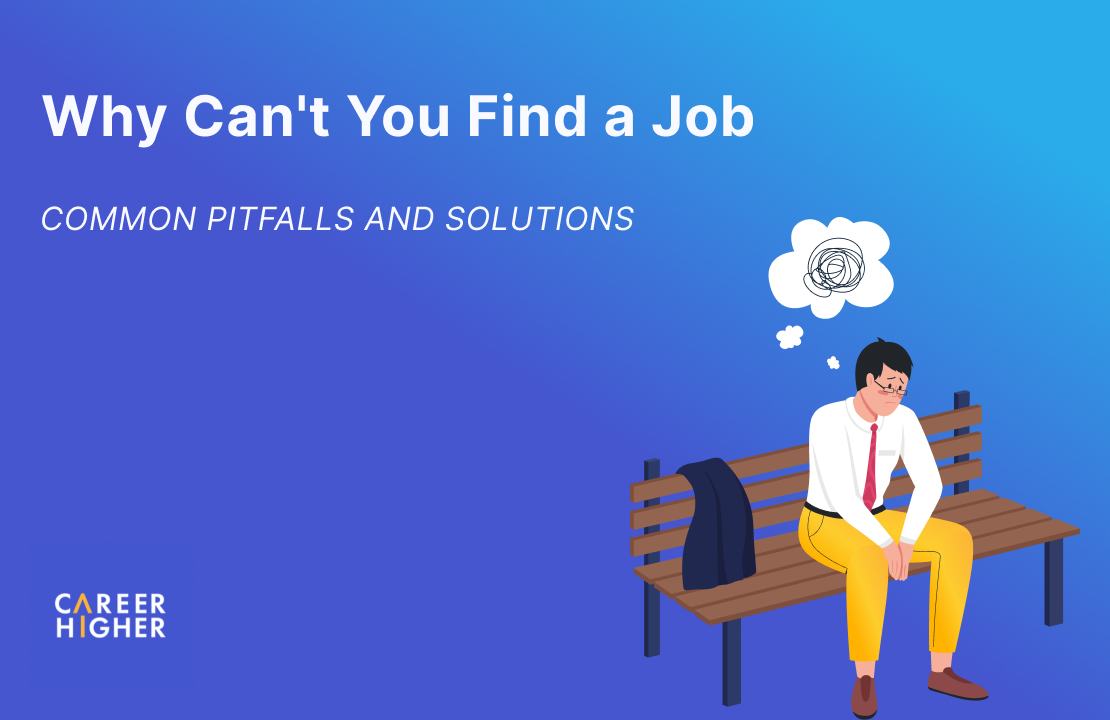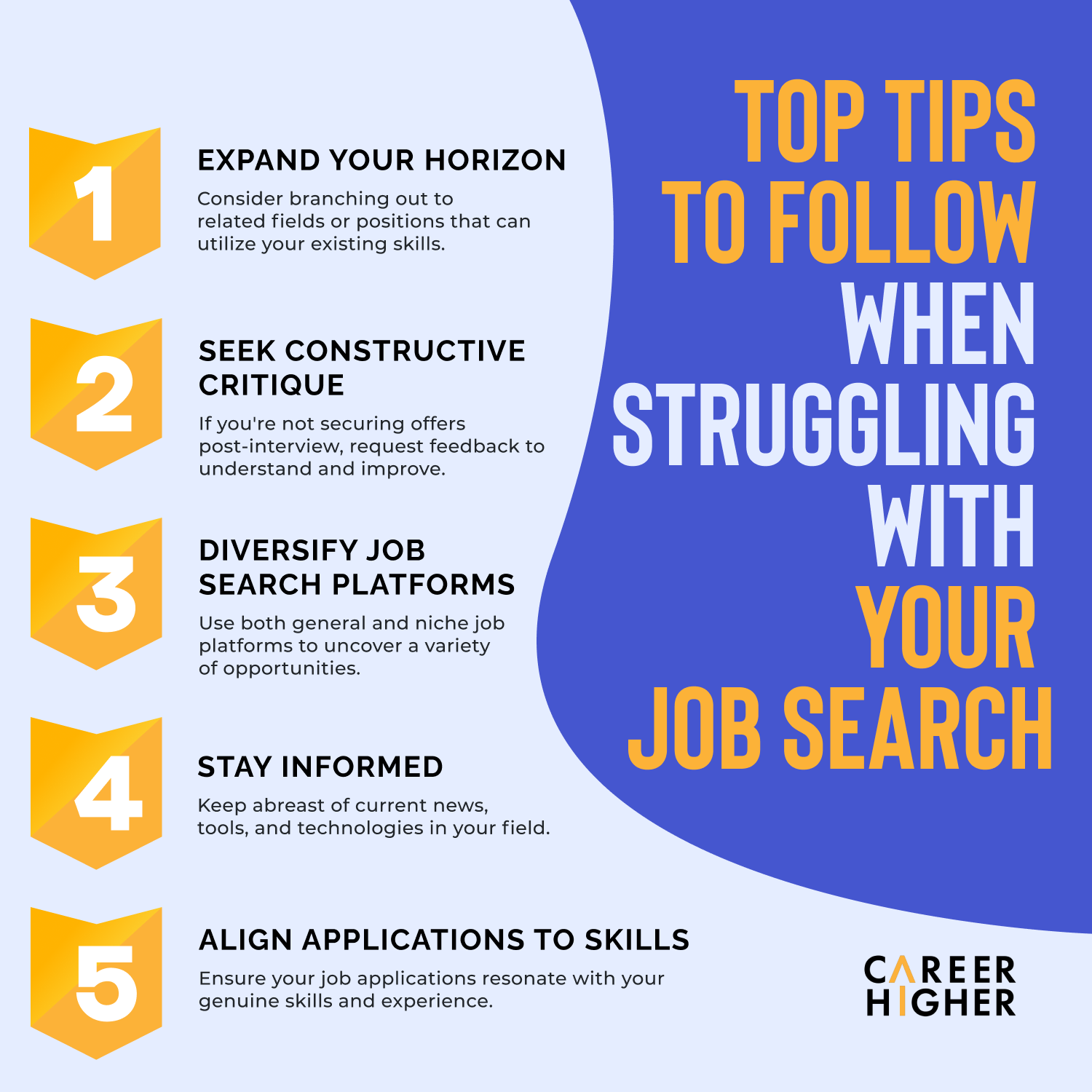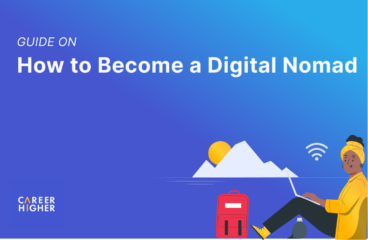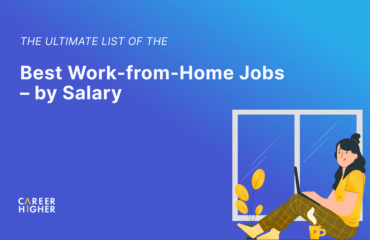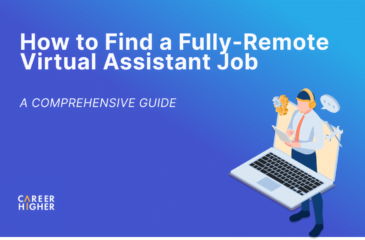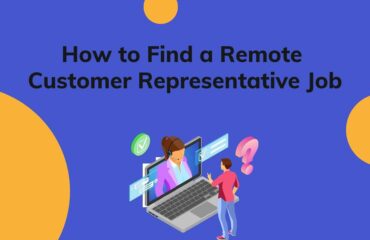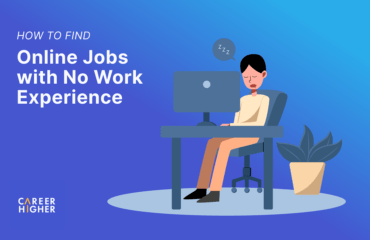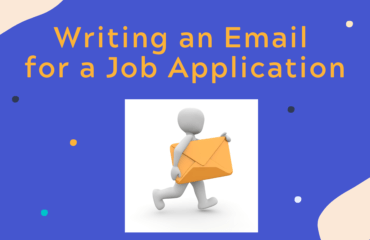Table of Contents
Looking for a job but having no luck? You’re not alone. Many people send out lots of applications and hear nothing back. If you’re asking yourself, “Why can’t I find a job?” you might be running into some common problems that can be fixed with the right strategy.
In this blog, we’ll talk about things that might be going wrong in your job search and what you can do to make it better. Whether you have just started job hunting or have been looking for a while, we’ve got some strategies that can help you land your dream role. So let’s get started!
Unsatisfying Job Hunt: Reasons and Answers
1) Not Getting Interviews
Are you sending dozens of job applications every week but not receiving any interview calls? We understand how frustrating the process can be. In the following section, we’ll explore some reasons why you may not be hearing back from employers along with practical tips to increase your chances of landing an interview.
a) Mismatched job requirements
For every job role, the employer looks for a certain set of skills, experiences, and qualifications. Some of these are essential, while others are simply desirable. Whether you are a newcomer or a seasoned professional, you may struggle to land an interview if your profile doesn’t align with what the employer is looking for. But remember, you don’t always have to tick every box on the checklist.
Here is an example:
A content marketing company is looking to fill a content writer position. The requirements are:
a) Essential: 2+ years of writing experience
b) Desirable: Knowledge of SEO practices.
Sarah, a prospective candidate, has 3 years of writing experience but lacks formal knowledge in SEO. Even though she may not meet the desired qualifications, her additional year of writing experience and eagerness to learn about SEO could still make her a compelling candidate for the job. Her profile may not be a perfect fit, but this doesn’t necessarily disqualify her from consideration.
Solution:
a) Analyze job requirements: Take some time to carefully analyze the job posting and identify the essential requirements and the desirable ones. The must-have requirements are usually listed first or highlighted in some way. If you don’t meet the must-haves, we recommend searching for positions that better align with your profile.
b) Highlight transferable skills: Emphasize your strengths by focusing on your transferable skills and experiences that align with the key requirements. For example, if you were an entrepreneur and are now looking for business development roles, you can highlight your talent for creating successful businesses, generating revenue, and negotiating with clients. Focusing on transferable skills can increase your chances of securing an interview.
c) Consider training: If you find that you lack a particular skill that frequently appears in job postings you’re interested in, consider taking a course or workshop to develop that skill.
d) Show enthusiasm: If you decide to apply for a job and don’t meet all the qualifications, be transparent but also display enthusiasm and a willingness to learn. A cover letter is an excellent platform to do this. Employers often value a positive attitude and a strong work ethic as much as specific skills.
Seek CareerHigher’s career clarity solution
With our Career Clarity coaching solution, you can identify the right opportunities for you. Our dedicated coaches will help you understand your needs and strengths, recommending roles, employers, and industries that align with your unique qualities and aspirations. We aim to minimize the risk of you making a wrong career choice, setting you on a path to success.
b) Uncustomized Resume and Cover Letter
One of the most common mistakes job seekers make during a job search is not tailoring their career documents for each position. According to a Glassdoor survey, a single job opening receives an average of 250 applications. In such a competitive scenario, generic documents often fail to highlight what makes you the perfect fit for the role, burying your resume in a sea of similar applications.
Employers typically scan applications in a few seconds. If your application fails to leave a positive impression, you’re unlikely to be called for an interview. Hence, we suggest investing time and effort in creating higher-quality resumes and cover letters targeted for each position.
Solution:
a) Create a tailored resume: To create a tailored resume, carefully read the job description and identify the key skills and experiences that are most relevant to the job. Use specific examples to illustrate how you’ve applied these skills in previous roles and include relevant keywords from the job description in your resume. Remember, to keep your resume concise and only include information that is relevant to the target job.
b) Create a tailored cover letter: In addition to a tailored resume, a cover letter can provide more context and detail about your qualifications and interest in the position. To create a tailored cover letter, address the hiring manager by their name, mention the specific job you’re applying for, and explain how your skills and experiences make you the perfect fit for the position. Research the company and express genuine interest in their mission and values, and end the letter with a strong call to action.
Choose CareerHigher’s resume and cover letter writing solution
Crafting the right resume and cover letter can be challenging. At CareerHigher, we simplify this for you by offering tailored resumes and cover letter writing solutions. Our resumes are optimized for both Applicant Tracking Systems (ATS) and recruiters, ensuring you stand out in the job market. We ensure that each career document reflects your unique value, making it simpler for potential employers to see your worth.
c) Unexplained Employment Gaps
Employment gaps are one of the major red flags during a job application and can explain why you’re not getting offers. Even if you have valid reasons, repeated and long-term career breaks may raise concerns for potential employers, especially if they remain unexplained. They may view this as a lack of passion and enthusiasm for what you do. You may also be perceived as someone who doesn’t have the skills and knowledge of the current industry trends.
Solution:
a) Explain the employment gap: Provide a brief and direct explanation of why you took a break in your professional life, whether it was for travel, health issues or family matters, be honest about it. Remember, not to overshare information.
b) Focus on the positive: When discussing an employment gap, talk about what you’ve gained during your time off. Whether you did volunteer work, experienced different cultures or learned a new skill, you can highlight what you bring to the table.
c) Stay professionally active: To showcase that your knowledge is up-to-date, consider taking online courses or attending industry workshops. Engage with the professionals in your field to stay connected.
d) Untapped Professional Network
Sometimes, job seekers underestimate the potential of their professional network. By engaging with professionals in your field and sharing your experiences and goals, you can increase your chances of being noticed by your potential employers. Also, networking provides access to the hidden job market. There are many vacancies that a company is looking to fill that aren’t advertised on the job portals.
Your professional network can also provide referrals, which can increase your chances of landing a job interview and ultimately being offered the job. In fact, according to Zippia, employee referrals are 4x more likely to receive a job offer. By recognizing and embracing the potential of networking, job seekers can tap into a plethora of opportunities that they otherwise would not have access to.
Solution:
a) Reach out to existing connections: The easiest way to start networking is by reaching out to your existing contacts in the industry. These may be your former colleagues, classmates, friends, or family members. Let these people know what your goals are and what kind of positions you’re targeting. Ask them if they can make any introductions or offer any insights.
b) Attend industry events: Be proactive and attend industry conferences, webinars, or other networking events to stay up-to-date with the latest industry trends and foster new connections.
c) Use social media: Professional networking platforms like LinkedIn are a great way to build and expand your network. Send out connection requests, join relevant communities, share insights, and contribute to discussions.
d) Provide value to your network: Networking isn’t only about receiving, it’s about giving too. Share resources, introduce people who can help each other, and offer suggestions or advice to foster meaningful connections. By adding value to others, you’ll increase the chances of your networking success.
Opt for CareerHigher’s LinkedIn profile development solution
We craft bespoke, SEO-optimized LinkedIn profiles that amplify your online presence and showcase you as an expert professional in your field. LinkedIn plays a crucial role in networking- with 8 jobseekers securing job positions every minute through the platform.
With CareerHigher’s expertise, you’ll be well-equipped to tap into the hidden job market on LinkedIn and magnetize opportunities that align with your career goals.
2) Getting Turned Down After an Interview
If you’ve secured an interview invitation, congratulations are in order – your resume and cover letter successfully captured the hiring manager’s attention. However, if you find yourself consistently not receiving follow-up communications after interviews, it may be an indication that your interview performance did not leave the desired impression. Below, we explore several possible reasons for this outcome, along with strategies for improvement:
a. Poor Interview Skills
Even if you’re an ideal candidate on paper, subpar interview skills can be a roadblock to securing the position. Several telltale signs of poor interview skills include ineffective communication, responses that are not aligned with the job description, unassertive body language, excessive nervousness, and a lack of confidence. Furthermore, exhibiting unprofessional behaviour during the interview—such as arriving late, wearing inappropriate attire, using slang or profanity, or speaking negatively about past employers—can often be a decisive factor in not being hired.
Solution: Thorough preparation and strong interview skills are crucial for conveying your qualifications and providing relevant, impactful responses to questions. An effective preparation strategy involves practising your answers to potential interview questions. You can practice independently, with a trusted colleague, or enlist the support of a professional interview coach for optimal results.
Also, invest in appropriate professional attire to make a positive first impression. Plan your travel ahead of time to ensure punctuality. Anticipate and rehearse responses to challenging questions, such as those concerning previous employers or instances of conflict. Demonstrate professionalism by addressing interviewers by their names, and make a lasting impression with prompt, formal follow-up communication.
b. Little to No Knowledge About the Company and Position
One of the reasons that you aren’t receiving positive news after your interviews could be because your responses do not demonstrate an appropriate understanding of the position, company, or industry. Employers want to know that you are prepared for the role and are a good fit for the company. Thus, they may ask questions about their history, vision, mission, culture, values, and business objectives. If you’re unable to convince the interviewer about your suitability for the role and company, it’s unlikely you’ll move to the next stage of the application process.
Solution:
Understanding your prospective employer and the job role you’re applying for is crucial for a successful job application. For this, conducting comprehensive research about the position, company, and industry is imperative. Start by exploring the company’s website and social media channels, such as LinkedIn and Facebook. These sources often provide insights into the company’s operations, vision, mission, and even the challenges they face.
Additionally, don’t hesitate to tap into your personal and professional networks. Ask colleagues or friends who might be familiar with the company for any insights they may have. Another valuable resource for company research is Glassdoor, where you can find employee reviews and insights into company culture, salaries, and interview experiences. Your efforts to understand the company in-depth will enable you to better tailor your application and interview responses.
c. Not Prepared for Difficult Questions
“What is your greatest weakness” and “Why should we hire you” are some common interview questions that job seekers often find challenging. Additionally, questions about why you were laid off or about the job changes you made in the past might put you in a difficult position. While there are no ‘right answers’ to these questions, failure to prepare to answer these will not only cost you the job but may also reflect badly on you as a candidate.
Solution:
We suggest you practice and even write down your responses to difficult questions, taking inspiration from the plethora of resources that can guide you. Engage with a friend, colleague, or even a former manager to conduct a mock interview with you and provide constructive feedback. When crafting your responses, remember to tailor your answers to what the company is looking for, while demonstrating your personality and unique talents.
d. Not Asking Good Questions
Asking the right questions during an interview process is important. Failing to do so can signal disinterest in the role and the organization. Also, asking well-thought-out questions allows you to showcase your skills and qualifications, highlighting your suitability for the position.
By not asking questions, you miss out on the opportunity to evaluate whether the role and company culture align with your career goals and values. Finally, asking insightful questions can demonstrate effective communication skills, a highly valued trait by employers.
Solution:
Asking questions can make you look engaged, interested, and enthusiastic, which are all qualities an employer is looking for during an interview. However, make sure to avoid asking those who have already been covered. You don’t want them to have the impression that you didn’t pay attention, right? Some questions you may consider asking are about the company’s long-term goals, a typical work day in your target role, and even their personal experience. Apart from demonstrating your genuine interest in the role, you will also be able to determine if the company is a good fit for you, professionally and culturally.
e. Higher Salary Requirements
One reason you might not hear back after an interview could be your salary requirements. If your salary expectations are significantly higher than what the employer is willing or able to offer, it could make them hesitant to move forward with your application. Employers typically have a budget in mind for a particular role, and if your demands exceed this budget, it may not be feasible for them to meet your requirements. It’s essential to research the typical salary range for the role you’re applying for and consider factors like your experience level, the company’s size, and the location when determining your salary expectations.
Solution:
Be flexible and open in your salary negotiations. Start by researching the average salary range for the position in your location, consider your level of experience, and the company’s size. When discussing your salary expectations, rather than stating a fixed amount, provide a range that you’re willing to consider. This approach shows that you’re flexible and open to negotiations.
Additionally, be prepared to articulate your value proposition to the employer – explain how your skills and experience will contribute to the company’s success. Remember, compensation is not only about salary. Be open to discussing other benefits such as bonus opportunities, health insurance, professional development, and work-life balance options that may make an overall package more attractive.
Partner with CareerHigher’s Salary Negotiation Specialist
Are you unsure about your ability to negotiate effectively? Let us assist you! Our salary negotiation solution includes proven strategies, assistance to build your case, and personalized advice to help you secure the compensation that you deserve.
f. Improper follow-up
Unfortunately, not following up could be perceived as a lack of interest by the employer. Companies are more likely to hire candidates that are excited to fulfil their potential role and follow procedures in a timely manner, both of these traits can be screened during the “follow-up” process.
Solution:
Employers value candidates who display genuine enthusiasm for the opportunity to join their team. To demonstrate this, make sure to send a “Thank You” note after each interview, expressing your gratitude for the opportunity to discuss the position. If you haven’t received feedback within the timeframe they indicated, it’s perfectly acceptable to send a polite follow-up email. Doing so not only serves as a reminder to the recruiter, but it also portrays you as a responsible potential employee, eager to contribute to the company’s success.
Expert Solution: Seek Interview Help with CareerHigher
Navigating an interview requires more than just work experience. It’s about presenting yourself confidently, understanding the company’s ethos, and effectively communicating your value. At CareerHigher, we specialize in interview preparation.
Our experts guide you in polishing your interview skills, from answering challenging questions to improving your body language to conducting mock interviews. With our tailored approach, you’ll be equipped to make a lasting impression, increasing your chances of securing your dream job. Let CareerHigher be your partner in turning interviews into job offers.
Best Practice Tips to Maximize Your Job Search
1) Take a Break
Job hunting can be mentally taxing. If you’re feeling overwhelmed, it’s essential to pause and recharge. Persistent stress can have adverse effects on mental well-being. Consider seeking support, whether it’s spending time with friends, pursuing hobbies, or consulting a therapist. A refreshed mind will approach opportunities more effectively.
2) Adopt a Positive Mindset
We recognize that job hunting can be daunting, especially when faced with consecutive rejections. However, resilience is pivotal. View each application as a lesson, and don’t shy away from celebrating the minor victories. Remember, job search is a marathon, not a sprint. It takes just one successful outcome to change the game.
3) Become A Volunteer
Volunteering not only allows you to make a positive contribution to society and foster a deep sense of purpose, but it also paves the way for valuable networking opportunities. Beyond acquiring new skills, you’ll forge relationships with like-minded individuals who can attest to your attributes. It’s beneficial to volunteer in areas aligned with your career interests. For instance, if you’re targeting a marketing position, consider volunteering to oversee the social media presence of a non-profit.
4) Explore New Industries
Depending on your sector or desired position, job market competition may be the reason you can’t find work. This is especially true during an economic downturn when employment becomes scarce and more people hunt for work. If your targeted industry is saturated or experiencing a downturn, consider broadening your horizons. Many skills are transferable across sectors. For instance, if you’ve been in finance, the fintech sector may value your expertise. Similarly, professionals in traditional retail might find immense opportunities in e-commerce. Stay adaptable and be open to exploring emerging fields like renewable energy or digital health.
Opt for Career Higher’s Job Search Management Solution
Navigating the job market can be daunting, especially when juggling multiple applications. At CareerHigher, we understand these challenges and their impact on the job search success. Hence, we offer a holistic job search management solution tailored to your needs. Instead of navigating the complexities of job hunting alone, let our dedicated team take the reins.
Our managed job search solution includes:
- Identifying the right opportunities for you.
- Creating top-notch career documents (CVs/Resumes, cover letters, pitches, and more).
- Managing all communications with potential employers.
- Running targeted email and LinkedIn campaigns to enhance your visibility.
- Scheduling interviews on your behalf.
- Providing expert support for interview preparation and salary negotiations.
Our continuous market analysis ensures you’re always aligned with the best-fit roles. Plus, with our “Top Job” approach, we prioritize positions that perfectly match your skills and career goals.
Practical Solutions to Get Hired Now
1) Find a Temporary Job
If you’ve been looking for work for a while and haven’t found the right fit, you might want to consider taking on a temporary role. Temporary employment is a great opportunity to get your foot in the door at an organization, acquire new skills, and expand your professional network. Temporary jobs can also help you pay your bills while you upskill yourself for your dream role.
2) Consider Relocation
If there’s a region or city known for opportunities in your field, consider moving. For example, tech professionals might find better prospects in tech hubs, while those in entertainment might benefit from being in places like Los Angeles or New York. Moving to these hubs not only opens doors for job opportunities but also increases the chance of valuable networking, putting you in close proximity to industry leaders and events.
3) Take up Freelance or Consultancy Work
If you possess specialized knowledge or skills, consider offering your services as a freelancer or consultant. Platforms like Upwork or Freelancer can help you get started, and this path not only provides flexibility but also allows you to build a diverse portfolio. While it may start as a temporary solution, many professionals have transitioned into full-time freelancing or consultancy, enjoying the autonomy and variety it offers. Establishing yourself in this manner can also lead to consistent, long-term contracts with organizations that value your expertise.
Opt for CareerHigher’s Guaranteed Success Program
What is the Guaranteed Success Program? When the stakes are high and you’re aiming for the very best in your job search, the last thing you want is uncertainty. Introducing CareerHigher’s Guaranteed Success Program: an end-to-end, all-inclusive, and managed job search solution available for select candidates based on their profile and goals.
How is it Different? In the realm of job search solutions, promises are aplenty, but tangible results can be elusive. With our program, we don’t just offer vague benefits, we pledge real, measurable outcomes. The Guaranteed Success Program ensures a comprehensive journey, from identifying your career goals to finding and applying for the right opportunities, to acing interviews and sealing the deal with successful negotiations.
Why Choose the Guaranteed Success Program? The distinguishing feature of our program is its all-encompassing nature. Not only does it cover every imaginable task, activity, and phase of a job search, but it also offers the luxury of a managed service. In simple words: we do the hard work for you. This translates to significant savings in terms of time, effort, and energy.
Our Commitment: We aren’t just confident, we’re sure. So sure that we promise you’ll get 10+ interviews or a suitable job offer within our specified timeframes. And if for any reason we fall short, we stand by our commitment to refund you.
Job hunting often requires a nuanced and strategic approach. By leveraging the insights provided above, you can identify potential setbacks and enhance your chances of success. Remember, the essence of the job search lies in continuous improvement and understanding that success is a journey, not a destination. We’re here to support you in your job search journey, every step of the way.
*This article is co-authored by Themis C
